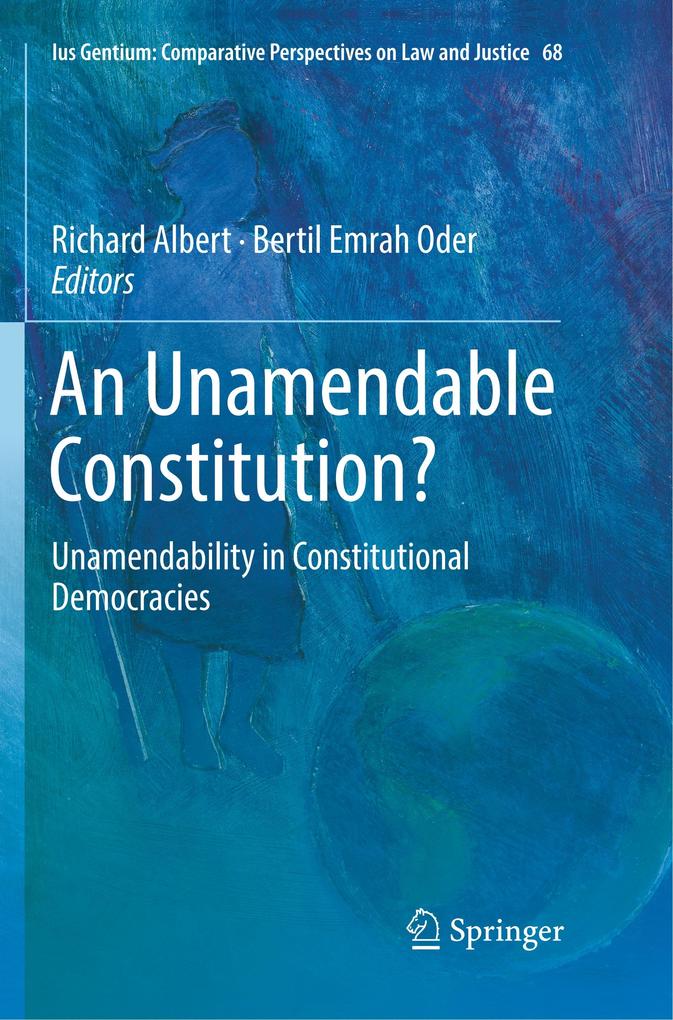
Zustellung: Di, 22.10. - Do, 24.10.
Versand in 2 Tagen
VersandkostenfreiBestellen & in Filiale abholen:
This book examines the subject of constitutional unamendability from comparative, doctrinal, empirical, historical, political and theoretical perspectives. It explores and evaluates the legitimacy of unamendability in the various forms that exist in constitutional democracies.
Modern constitutionalism has given rise to a paradox: can a constitutional amendment be unconstitutional? Today it is normatively contested but descriptively undeniable that a constitutional amendment-one that respects the formal procedures of textual alteration laid down in the constitutional text-may be invalidated for violating either a written or unwritten constitutional norm. This phenomenon of an unconstitutional constitutional amendment traces its political foundations to France and the United States, its doctrinal origins to Germany, and it has migrated in some form to all corners of the democratic world. One can trace this paradox to the concept of constitutional unamendability. Constitutional unamendability can be understood as a formally entrenched provision(s) or an informally entrenched norm that prohibits an alteration or violation of that provision or norm. An unamendable constitutional provision is impervious to formal amendment, even with supermajority or even unanimous agreement from the political actors whose consent is required to alter the constitutional text. Whether or not it is enforced, and also by whom, this prohibition raises fundamental questions implicating sovereignty, legitimacy, democracy and the rule of law.
Inhaltsverzeichnis
Chapter 1. The Forms of Unamendability.- Part I: The Legitimacy and Limits of Unamendability.-Chapter 2. Necrocracy or Democracy? Assessing Objections to Constitutional Unamendability.- Chapter 3. A Constitution for Eternity: An Economic Theory of Explicit Unamendability.- Chapter 4. Conventions of Unamendability: Covert Constitutional Unamendability in (Two) Politically Enforced Constitutions.- Chapter 5. Credible Commitment or Paternalism? The Case of Unamendability.- Part II: Unamendability around the World.- Chapter 6. Constitutional Falsehoods: The Fourth Judges Case and the Basic Structure Doctrine in India .- Chapter 7. Unamendability in Israel: A Critical Perspective.- Chapter 8. Eternal Provisions in the Bangladeshi Constitution: A Constitution Once and For All ?.- Chapter 9. Unamendability as a judicial discovery? Inductive learning lessons from Hungary.- Chapter 10. Amending the Unamendable: The Case of Article 20 of the German Basic Law.- Chapter 11. Debating Unamendability: Deadlock in Turkey s Constitution-Making Process.- Chapter 12. The Unamendability of Amendable Clauses: The Case of the Turkish Constitution.- Chapter 13. Brazil in the Context of the Debate Over Unamendability in Latin America.- Chapter 14. Unamendable Constitutional Provisions and the European Common Constitutional Heritage: A Comparison Among Three Waves of Constitutionalism.
Produktdetails
Erscheinungsdatum
03. Januar 2019
Sprache
englisch
Auflage
Softcover reprint of the original 1st ed. 2018
Seitenanzahl
400
Reihe
Ius Gentium: Comparative Perspectives on Law and Justice
Herausgegeben von
Richard Albert, Bertil Emrah Oder
Verlag/Hersteller
Produktart
kartoniert
Abbildungen
IX, 390 p.
Gewicht
604 g
Größe (L/B/H)
235/155/22 mm
Sonstiges
Paperback
ISBN
9783030069827
Entdecken Sie mehr
Bewertungen
0 Bewertungen
Es wurden noch keine Bewertungen abgegeben. Schreiben Sie die erste Bewertung zu "An Unamendable Constitution?" und helfen Sie damit anderen bei der Kaufentscheidung.









